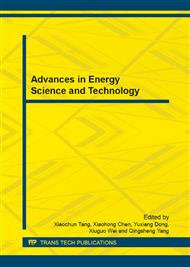p.902
p.907
p.911
p.916
p.920
p.927
p.931
p.938
p.945
Analysis of Welding Fatigue on Electric Scooter Using CAE Approach
Abstract:
Since Industrial Revolution, fossil fuel has played an important role in technology, industry, and transportation, where an enormous amount of fossil fuel has been consumed, causing short supply. Transportation with other energy therefore has become the development objective for many countries. With the progress of technology, electric scooters have become popular because of the great supports of the governments. Corresponding to consumers’ demands, the requirements for functions and styles are also enhanced. With present engineering drawing and analysis software, this study aims to discuss the change of stress and fatigue endurance of welded electric scooter frames under loads. A real vehicle is proceeded road tests in order to verify the feasibility on various combinations of roads. The analyses show that, with proper design, the maximum stress of the self-weight of electric scooter frames or when considering carrying a person is lower than the yield stress of the frame itself. Regarding the fatigue endurance analyses, the operational life could satisfy the anticipation of the manufacturers to the functions. The research outcomes are expected to assist domestic manufacturers in designing new-style electric scooters or making improvement.
Info:
Periodical:
Pages:
920-924
Citation:
Online since:
February 2013
Authors:
Price:
Сopyright:
© 2013 Trans Tech Publications Ltd. All Rights Reserved
Share:
Citation:


